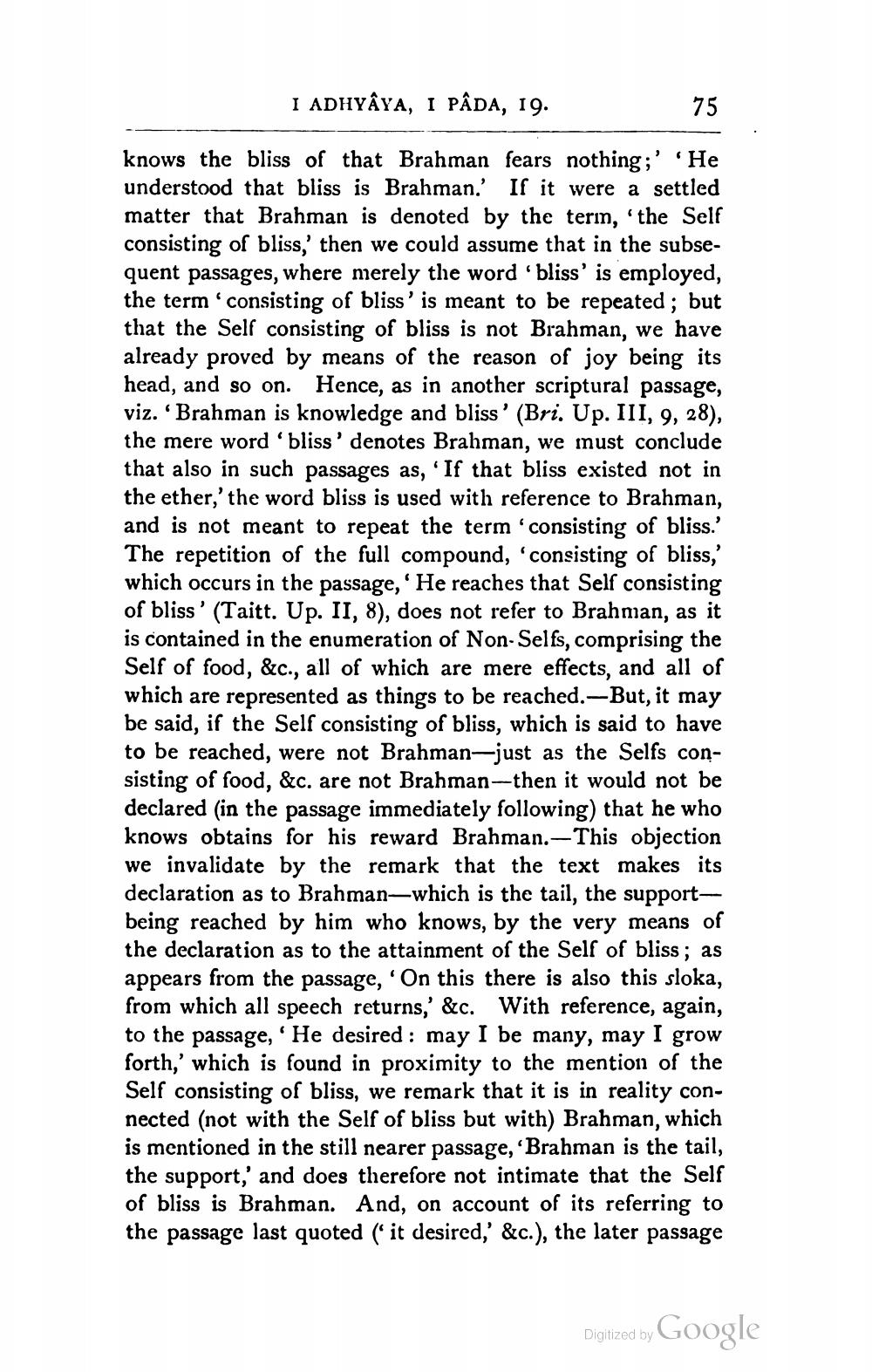________________
I ADHYAYA, I PÂDA, 19.
75
knows the bliss of that Brahman fears nothing;' He understood that bliss is Brahman.' If it were a settled matter that Brahman is denoted by the terin, the Self consisting of bliss,' then we could assume that in the subsequent passages, where merely the word 'bliss' is employed, the term consisting of bliss' is meant to be repeated; but that the Self consisting of bliss is not Brahman, we have already proved by means of the reason of joy being its head, and so on. Hence, as in another scriptural passage, viz. 'Brahman is knowledge and bliss' (Bri. Up. III, 9, 28), the mere word 'bliss' denotes Brahman, we must conclude that also in such passages as, 'If that bliss existed not in the ether,' the word bliss is used with reference to Brahman, and is not meant to repeat the term 'consisting of bliss.' The repetition of the full compound, consisting of bliss,' which occurs in the passage, 'He reaches that Self consisting of bliss' (Taitt. Up. II, 8), does not refer to Brahman, as it is contained in the enumeration of Non-Selfs, comprising the Self of food, &c., all of which are mere effects, and all of which are represented as things to be reached.-But, it may be said, if the Self consisting of bliss, which is said to have to be reached, were not Brahman-just as the Selfs consisting of food, &c. are not Brahman-then it would not be declared in the passage immediately following) that he who knows obtains for his reward Brahman.-This objection we invalidate by the remark that the text makes its declaration as to Brahman—which is the tail, the supportbeing reached by him who knows, by the very means of the declaration as to the attainment of the Self of bliss; as appears from the passage, 'On this there is also this sloka, from which all speech returns,' &c. With reference, again, to the passage, 'He desired : may I be many, may I grow forth,' which is found in proximity to the mention of the Self consisting of bliss, we remark that it is in reality connected (not with the Self of bliss but with) Brahman, which is mentioned in the still nearer passage, 'Brahman is the tail, the support,' and does therefore not intimate that the Self of bliss is Brahman. And, on account of its referring to the passage last quoted (' it desired,' &c.), the later passage
Digitized by
Digized by Google




